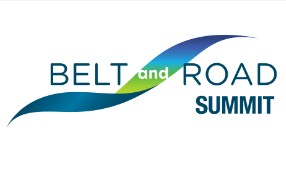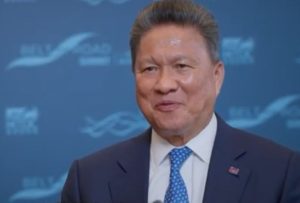HONG KONG — The 10th Belt and Road Summit concluded successfully this week, attracting over 6,200 delegates from more than 70 countries and regions, according to government releases and press reports. The summit, jointly organized by the Hong Kong Special Administrative Region (HKSAR) Government and the Hong Kong Trade Development Council (HKTDC), aimed to deepen cooperation under the theme “Collaborate for Change · Shape a Shared Future.”
Record Agreements & Financial Momentum
- A record 45 Memoranda of Understanding (MoUs) were signed, spanning both government-to-government (G2G) and business-to-business (B2B) deals in sectors including aviation, energy, finance, infrastructure, and technology.
- Summit organizers report that this deal‐volume, together with projects announced before and during the event, approaches US$1 billion in value.
- More than 300 investment projects were showcased, and over 800 one-to-one business matching meetings took place.
Key Voices & Emerging Focus Areas
- HKSAR Chief Executive John Lee emphasized that in its decade‐long history, the Summit has hosted over 45,000 participants from roughly 120 countries and regions, reviewing more than 2,800 projects.
- Financial Secretary Paul Chan spotlighted green finance, sustainable development, digital innovation, and regulatory services as sectors where Hong Kong aims to add value.
- Cambodia’s Deputy Prime Minister Sun Chanthol noted Cambodia’s progress under the Belt and Road Initiative, pointing to more than 3,000 kilometres of roads and 16 major bridges constructed in recent years with Chinese support:
Strategic Partnerships and Regional Highlights
- Notable MoUs included cooperation agreements such as one between HKTDC and Invest Oman, and multiple cross-sector B2B partnerships.
- New sessions at the Summit focused on urban development projects in Thailand and Saudi Arabia, as well as the introduction of market-spotlight sessions, signature projects, and collaborative tools for sustainable development.
Hong Kong Reasserts Its Role as Global Connector
- Speakers and delegates described Hong Kong as a “super-connector” and “super value-adder,” emphasizing its legal system, international finance links, and talent pool as key competitive advantages.
- The government has also pledged to enhance cooperation mechanisms for Belt & Road economies, including expanding professional services in ASEAN, implementing green innovations, and boosting digital infrastructure collaboration.
Outlook & Continuing Dialogues
As the Summit closed, discussions continue at the Belt and Road Global Forum Annual Roundtable, where officials from Hong Kong, Mainland China, and international organizations are focusing on follow-through: ensuring that signed agreements translate into implemented projects, enhancing transparency and sustainability, and fostering local impact.
The outcomes from this year’s summit underscore the renewed momentum of the Belt and Road Initiative, which navigates complex global challenges but still serves as a key platform for investment, connectivity, and emerging market development. (zai)


